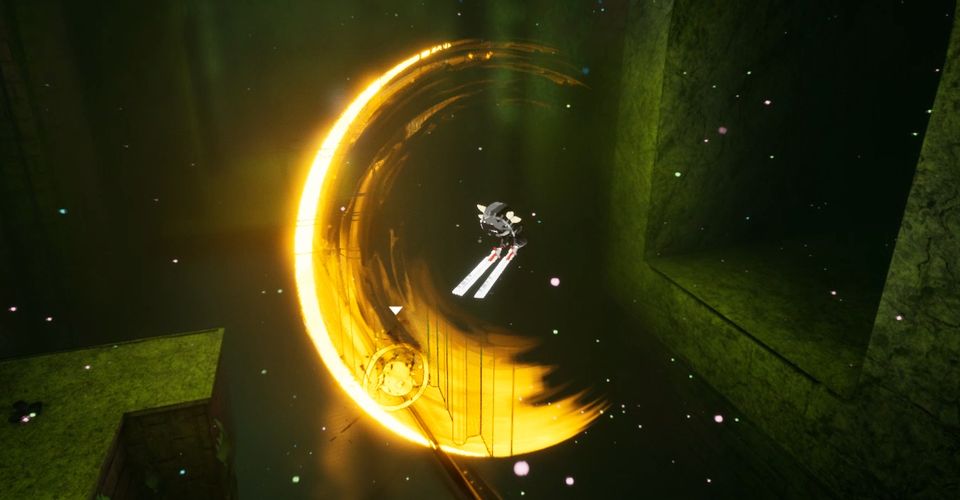Blue Fire Review Roundup
From youthful indie developer, ROBI Studios includes Blue Fire, a spiritual successor to Zelda’s Legend using a Tricky twist. The title”Blue Fire” is a reference to some frequent elements found from the Zelda world-class. While puzzles in the game might not be as hard as the Water Temple, Blue Fire’s temples can only be researched with 3D platforming maneuvers, together with the additional challenge of marginally Souls-such as the battle.
Nonetheless, it’s an ambitious project for a small group of individuals, involving the Zelda and Hollow Knight-motivated images along with the underdeveloped battle system, and it turned visible to critics who believed Blue Fire a little off more than it could chew. In the story, Also, Blue Fire is based on being only a Zelda successor Without much actual narrative to tie the gameplay to the assumption. However, if gamers are searching for a challenging platforming adventure, they will meet their game with Blue Fire, and it is definitely the shining star of this match.
RELATED: Team Cherry Teases Non-Hollow Knight Game Coming Later Silk song
IGN (Brendan Graeber)
“Blue Fire supplies An impeccable platforming experience together with the only right balance of skills to challenges and master to examine you, making its gloomy and tainted planet a joy to explore. Its Zelda-like dungeon experiences can wind somewhat too shortly before it starts relying on too comfortable jelqing. Still, it does not dull the pleasure of dashing about obstacles and battling enemies equally. And when the pacing of its principal route falters slightly, the irresistible lure of its own ingenious challenge rooms kept me coming back for more. ”
Score: 8/10
PC Invasion (Andrew Farrel)
“It is rare For me to play with a match I desperately want to enjoy but frequently can not stand playing with. Blue Fire is like The Legend of Zelda, spanned using a platformer and then blended with tacked-on Souls-like components. Though the level layout and motion controls are above average, the sport has many nagging issues and design oversights that pile higher and higher as you play with it. There is clearly talent and powerful ideas on screen here, but they are buried beneath a mountain of sudden frustrations. ”
“Enemies are incorporated smoothly into the game’s platforming, often acting as obstacles of sorts. Although interesting in design, the bosses were often easy and somewhat of an anti-climax at the end of a difficult temple. The Forest Shrine’s boss was notable for this, going down in only a few attempts in comparison to the many, many attempts I had at the platforming leading up to it. Annoyingly, when dying against the bosses and in the temples, you will usually be thrown right back to the start of the temple, forcing you to re-do certain segments, although this could be seen as a fair punishment for a game over.”
Score: 8/10
Noisy Pixel (Orpheus Joshua)
“In regards to performance, Blue Fire was mostly adequate. There was rarely ever any graphical oddities or slowdown, though they did crop up now and again. Unfortunately, at least in the build I played, it was impossible to remap controls in-game. This is not a massive hindrance, as you can alter your control setup from Steam proper. Still, it would be far more convenient if remapping controls in-game was possible. Hopefully, this is a feature patched in soon. Also, to note, I experienced several seemingly random crashes when performing screen transitions, so it is best to save whenever applicable.”
Score: 8/10
Game Spew (Dan Lipscombe)
“Ultimately, we’re left with a game that doesn’t appear to know exactly what it wants to be. Without the platforming, Blue Fire might have been a Souls-like adventure game. Without the combat, it would excel at precision platforming. But with both aspects in the mix, it doesn’t quite stick the landing of either.”
Score: 6/10
Of course, there’s always the price tag to consider, and with indie games, weighing their worth can be a bit more difficult. Blue Fire can be completed in around 10 hours but doesn’t offer a major replayability factor. At $19.99, some critics felt that Blue Fire wasn’t worth their money due to their frustrating experiences with the game, while others absolutely adored it.
Blue Fire is best suited for those who love a good challenge and overcoming difficulty by getting better and better at parkouring. It can be brutally punishing at times and exhibits a level of backtracking akin to Skyward Sword. Still, for players who have the patience and skill needed for platformers like Spelunky or Celeste, Blue Fire is a great follow-up challenge.







